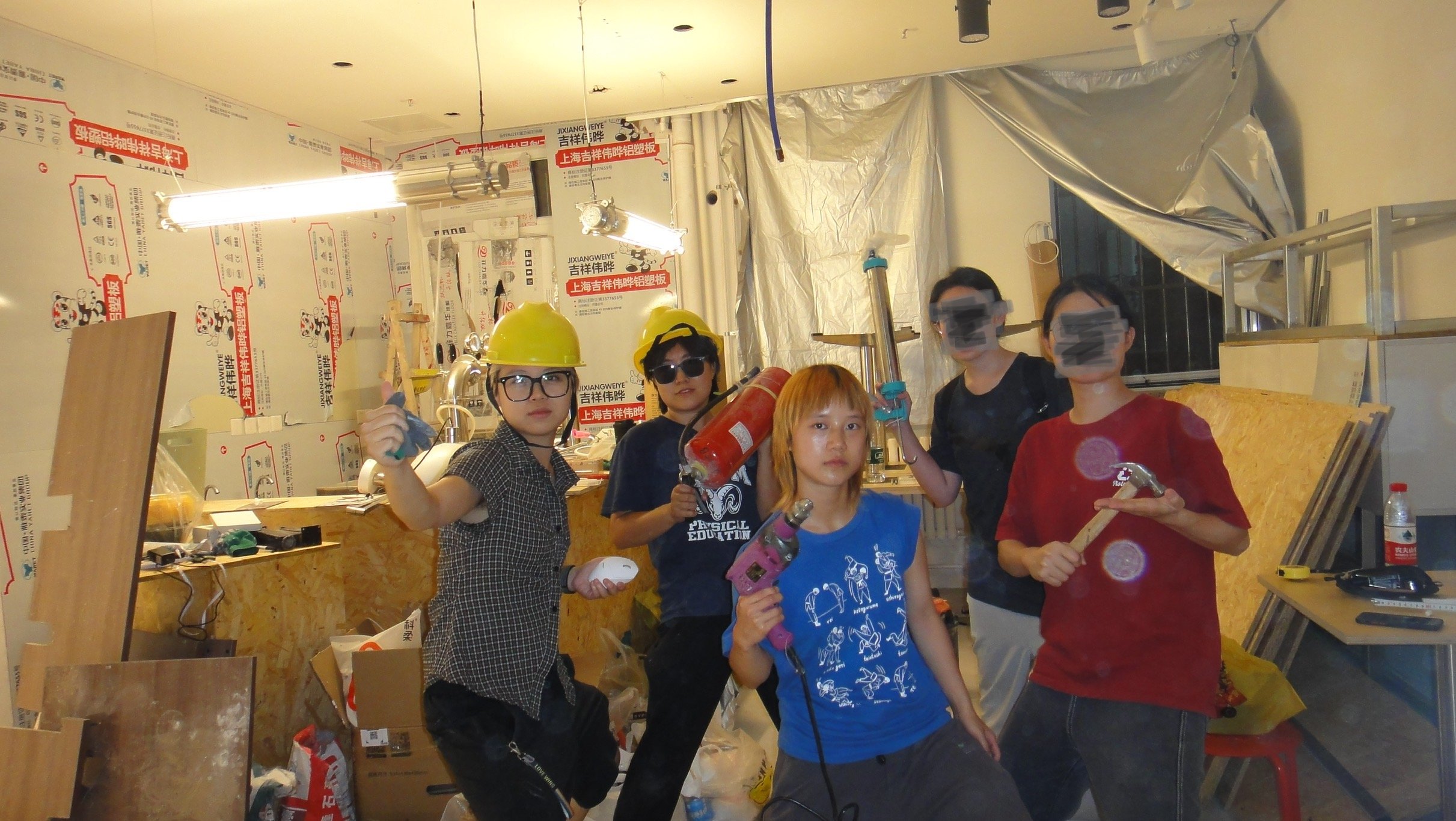As someone who has worked in the field of female empowerment for nearly 10 years, I was very excited when I saw that #MeToo had started proliferating in China. But I was also not surprised when the Chinese version of the hashtag #我也是#, or WoYeShi, was quickly censored and “harmonized” (or as locals say, “River Crab‘ed”).
I currently run Phoenix Risen, a platform that brings men and women together to combat sexism as the root cause of sexual violation. We are active in 10 countries, 15 cities in China, Africa, and SE Asia, through content creation, convening nonprofits, and consulting for corporations. Starting in October 2016, we’ve run a number of training workshops for grassroots and corporates, hosted events aimed at generating awareness, and collaborated with other organizations. Knowing the reticence of women to speak up even in these carefully constructed, intimate spaces, it was no surprise that #MeToo had taken nearly half a year to really take off in China.

Stephany delivers a talk at a TEDxSuzhouWomen event
Starting with a couple of key academics and journalists who spoke up, one of them, Sophia Huang Xueqin, even started a poll on WeChat of 255 women. 80% of them said they had been sexually harassed, which is higher than Phoenix Risen’s approximate average of 70% from our global surveys.
The fact that most of the accusations have taken place against men in academia is an interesting commentary on where power lies within China. This includes predominantly students and researchers, but also journalists. Professors and teachers are very highly revered, in the same way that powerful businessmen in the Western world are.
Perhaps #MeToo has not taken such a hold in the business world in China because the Chinese business landscape is arguably much more dependent on relationships, or guanxi. Speaking up could cause a kind of irreversible black-listing that very few in a stability-focused culture would risk.
Even though the government has ostensibly shut down #MeToo, the movement is still alive! A group of community organizers have created the National List of University Teachers’ Declaration against Sexual Harassment, which is a petition being circulated around WeChat. It starts with a stirring preamble of solidarity, and a conviction not to be silenced.


Sophia Huang Xueqin holds up a #MeToo sign in Guangzhou. Photo her own.
China has an extremely complex history with feminism. Mao has said that “women hold up half the sky,” but at the same time, the dynastic patriarchal culture still runs deep. Due to a lack of individualism, victim-blaming is widespread. In one of our workshops in Shanghai, a girl shared a story where a taxi driver kept creeping his hand up her leg. When she told her mother, the first response was “were you wearing a short skirt?”
My greater concern is always what’s not being covered. In terms of sexual harassment, what’s been covered recently in the West is very white collar (media, tech industries) but most of the time, the worst situations occur when there is a big power differential in the workplace. For example, in factories where thousands of women work under a few male bosses, there are rife conditions for abuse. As shown by a survey in a 2013 study by China Labour Bulletin, 70% of women in Guangzhou factories have been sexually harassed. Often the workers are neither economically nor legally empowered, and many of them don’t understand the processes to deal with or report sexual harassment (some may even be illiterate). Many hold a lower socio-economic status, so they are the most immediately disenfranchised, with the fewest routes to remedy the situation. It’s a problem, based on our casual talks with factory auditing firms in China. They don’t audit for this, but there are stories that rise to the surface, and my impression is that it’s not uncommon.

Of the women surveyed, none responded to sexual harassment by seeking help from higher bodies / Survey by the Sunflower Women Workers Centre
What’s the solution? How do we keep #MeToo alive in China? The answer is in awareness, empowerment, and communication. Women need to define their boundaries and know that there is a structured way to deal with such cases. Even in our recent report of sexual harassment and awareness around Chinese youth, we found that nearly 70% of girls in high school have been in a situation where they were made physically or emotionally uncomfortable by a man, but only 3% of them had ever paid any attention to news about sexual violation. Therefore, to help combat and even preempt this serious issue, young people should be educated sooner about sexual violence, especially since the age group we surveyed is a pivotal age for developing sexual resilience and confidence.
In our workshops, we also found that between men and women, there’s less of an exchange and signaling of what is and isn’t appropriate. Chinese men can sometimes lack social awareness, and might not know where the line is when it comes to instances like complimenting versus harassment. Chinese workplaces can be quite rigid, but then you have the drunken carnage of work banquets. These polarizing experiences can be really confusing for setting correct boundaries between colleagues.
If everyone together can take the first steps toward better communication and education, we can take steps to mitigating the need for #MeToo, even without the hashtag.
Cover Photo: Zheng Xi 郑熹


















